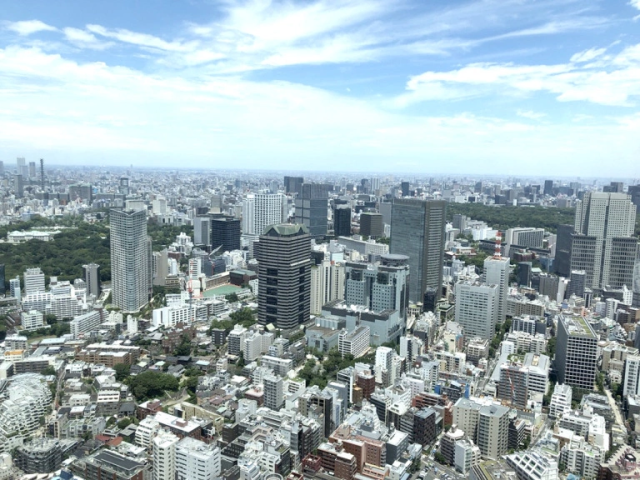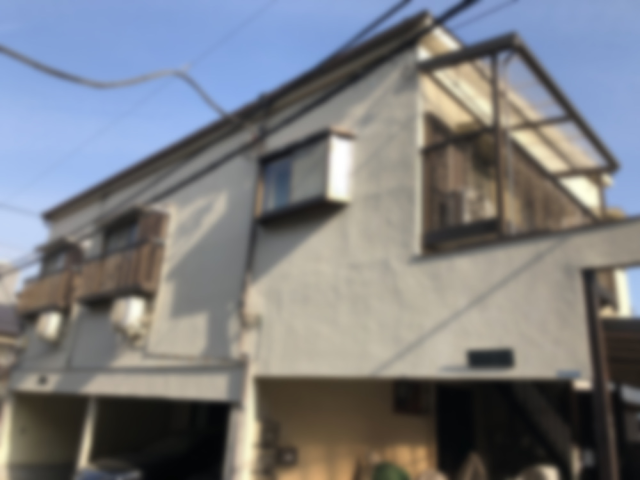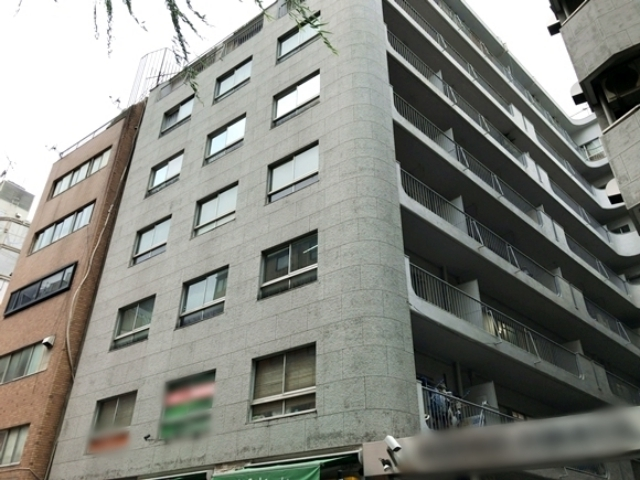
And even if the owner won’t budge on the rent, you can still negotiate for some concessions that could save you a ton of cash.
Renting an apartment in Japan not only requires you to pay a lot of money, but a lot of different types of money. In addition to monthly rent, before you spend a single night in your new home you’ll usually need to fork over a security deposit, rent guarantor company contracting fee, and the hated “key money,” also known as reikin, a non-refundable gratuity you pay to your landlord for being kind enough to let you pay rent every month.
With so many draws on would-be tenants finances, we talked to A-san, who spent roughly 10 years working as a real estate agent in Japan, to find out if there’s any way to cushion our wallets from the blow when looking for a new apartment.
▼ A-san
SoraNews24: Is there a way to get the landlord to lower the monthly rent?
A-san: Yes, there is. In order to make it easier to understand, first let me explain a little about the real estate industry itself.
There are actually three types of companies in the real estate industry. One is the “owner company,” the landlord (either and individual or an organization) who owns the building. Next is the “intermediary company,” the real estate agency who introduces new tenants to the property owner. Finally, there’s the “management company” which manages and maintains the building by request from the property owner.
The rent is decided on by the owner. After all, they’re the ones who own the building. The owner might consult with the intermediary and ask what the market price is for that type of apartment in that neighborhood, but ultimately it’s the owner who decides how much the rent is going to be.
So if the owner decides to lower the rent, it’ll be lowered, and if they don’t, then it won’t. In Japan, most people go through an intermediary company when signing their lease, but the intermediary has no ability to decide on, or change, the rent. All the real estate agency/intermediary company can do is relay your requests to the owner.
SN24: So are you saying that if we want the rent lowered, we should deal with the owner directly?
A-san: When it’s possible, that would be best. There are all sorts of owners. Some of them have hundreds of properties, while some just have a single building they rent out. If it’s a small owner company, it’d be smoothest to meet with them directly, introduce yourself, and negotiate from there.
It’s not like owners are going to be eager to knock down the rent, though. You’ll have the best chance of success if you’re going after an apartment in a building that has a number of vacancies already. For example, if there are 10 apartments in the building, and nine of them already have tenants, the owner isn’t likely to budge on rent. But if only seven of the rooms have tenants? For the owner, having that much unused space in the building is a waste, so they’ll probably be willing to lower the rent a bit to get another paying tenant into the building. If you’re interested in an apartment, you should ask the intermediary how many empty rooms the building has.
SN24: What if the owner won’t lower the rent?
A-san: If the owner won’t lower the rent, it’s usually not quite as difficult to get them to replace things like the heater/air conditioner, bathtub, or kitchen fixtures. The preexisting fixtures that are there when you move in are the owner’s property, so even after you move out, they still have value to the owner, since they make the apartment more attractive to prospective tenants who come after you. That makes it easy to convince owners to invest in new fixtures. A lot of owners who don’t want to lose revenue by lowering the rent are still agreeable to replacing the fixtures, since it raises the value of their property as a rental asset.
You can also ask if it’s possible to get what’s called “free rent” before you move in, where you aren’t charged any rent for the first month or two, depending o n the exact terms. Like I said, owners don’t want their empty apartments to be just sitting there, so free rent is a way to encourage prospective tenants to move in and establish an eventual revenue stream from the apartment, so it’s something to ask about the possibility of before you sign the lease.
SN24: When moving in, a lot of places ask for security deposits and key money/reikin. Do we really have to pay that?
A-san: Just like with the monthly rent, that’s ultimately all up to the owner. Sure, you usually have a person who acts as guarantor who co-signs the lease with you, but the actual legal process to obtain payment from the co-signer is time and energy-consuming, so a lot of owners want the security deposit so they can be sure that, no matter what, they’ll have at least that much money if need be.
SN24: OK, but what about the key money? In Japanese it’s called reikin, which means “appreciation money,” but why do we have to say “Thank you” when we’re the ones paying?
A-san: You’re exactly right; it is strange. Some people say the word reikin comes from a long time ago, when parents would send a gratuity with their child when they moved from the countryside to Tokyo, as a way of saying “Please look after my kid” to their new landlord.
But nowadays, fewer properties require reikin. More people have come to think that it’s weird to pay a gratuity when the monthly rent is firmly decided on before you sign the lease. So if you’re interested in an apartment, but really don’t want to pay the reikin/key money, that’s another thing you can negotiate with the owner.
SN24: Are there any other expenses we can cut down before signing the lease?
A-san: Recently, some apartments require you to also contract with a rent guarantor company. Put simply, it’s a company that agrees to pay the owner in your stead if you don’t pay your rent. Especially if you don’t have a personal guarantor, landlords often want you to use a guarantor company, but some also require you to use a guarantor company even if you have a personal guarantor, and the one-time fee when you sign the lease is usually one month’s rent.
But again, this is all up to the property owner. For example, if you have a personal guarantor who you can show is very secure and reliable, the owner might agree to waive the guarantor company requirement, so you can save that one month’s worth of rent. In an extreme example, you might be able to get out of the guarantor requirement by offering to pay a whole year’s rent in advance. It’s a lot of money, but paying 12 months all at once is a lower total figure than 13 months. Agreeing to pay a slightly higher security deposit can also make an owner more accommodating as far as waiving the guarantor company requirement.
As we wrapped up our conversation, A-san once again reminded us that the amount of money you have to pay is entirely decided on by the owner, not the real estate agent. While it can be frustrating that the agency itself can’t make any accommodations for you, the position of power the owner sits in can work to your advantage too, because it means that, in a way, all of the rental terms, including monthly rent and key money, are actually negotiable, and as A-san tells it, it never hurts to ask if the first price quoted to you is really the best price the landlord can give you.
Photos ©SoraNews24





 Tokyo realtor will give you hundreds of dollars of anime decorations for your new apartment
Tokyo realtor will give you hundreds of dollars of anime decorations for your new apartment House hunting? Here are some tips that might prevent headaches and frustrations
House hunting? Here are some tips that might prevent headaches and frustrations How much money do you need to live in your own apartment in Japan?【Survey】
How much money do you need to live in your own apartment in Japan?【Survey】 Survey finds roughly one in four all-night Internet cafe customers in Tokyo is homeless
Survey finds roughly one in four all-night Internet cafe customers in Tokyo is homeless Create your dream share house and win a chance to live there rent-free for two years
Create your dream share house and win a chance to live there rent-free for two years Seaside scenery, history, and so many desserts on Yokohama’s Akai Kutsu【Japan Loop Buses】
Seaside scenery, history, and so many desserts on Yokohama’s Akai Kutsu【Japan Loop Buses】 Red light district sushi restaurant in Tokyo shows us just how wrong we were about it
Red light district sushi restaurant in Tokyo shows us just how wrong we were about it Foreigner’s request for help in Tokyo makes us sad for the state of society
Foreigner’s request for help in Tokyo makes us sad for the state of society Akihabara pop-up shop sells goods made by Japanese prison inmates
Akihabara pop-up shop sells goods made by Japanese prison inmates Sandwiches fit for a sumo served up in Osaka【Taste Test】
Sandwiches fit for a sumo served up in Osaka【Taste Test】 Harajuku Station’s beautiful old wooden building is set to return, with a new complex around it
Harajuku Station’s beautiful old wooden building is set to return, with a new complex around it Do Hi-Chew-flavor Hi-Chews have a reason to exist?【Taste test】
Do Hi-Chew-flavor Hi-Chews have a reason to exist?【Taste test】 Suntory x Super Mario collaboration creates a clever way to transform into Mario【Videos】
Suntory x Super Mario collaboration creates a clever way to transform into Mario【Videos】 Should you add tartar sauce to Japanese curry rice? CoCo Ichi makes diners an unusual offer
Should you add tartar sauce to Japanese curry rice? CoCo Ichi makes diners an unusual offer Smash Bros. director Sakurai stabs Kirby in the face, has delicious justification for it
Smash Bros. director Sakurai stabs Kirby in the face, has delicious justification for it McDonald’s new Happy Meals offer up cute and practical Sanrio lifestyle goods
McDonald’s new Happy Meals offer up cute and practical Sanrio lifestyle goods Japanese ramen restaurants under pressure from new yen banknotes
Japanese ramen restaurants under pressure from new yen banknotes French Fries Bread in Tokyo’s Shibuya becomes a hit on social media
French Fries Bread in Tokyo’s Shibuya becomes a hit on social media Studio Ghibli releases new action figures featuring Nausicaä of the Valley of the Wind characters
Studio Ghibli releases new action figures featuring Nausicaä of the Valley of the Wind characters New private rooms on Tokaido Shinkansen change the way we travel from Tokyo to Kyoto
New private rooms on Tokaido Shinkansen change the way we travel from Tokyo to Kyoto Tokyo Tsukiji fish market site to be redeveloped with 50,000-seat stadium, hotel, shopping center
Tokyo Tsukiji fish market site to be redeveloped with 50,000-seat stadium, hotel, shopping center Beautiful Ghibli sealing wax kits let you create accessories and elegant letter decorations【Pics】
Beautiful Ghibli sealing wax kits let you create accessories and elegant letter decorations【Pics】 Japanese city loses residents’ personal data, which was on paper being transported on a windy day
Japanese city loses residents’ personal data, which was on paper being transported on a windy day Studio Ghibli releases Kiki’s Delivery Service chocolate cake pouches in Japan
Studio Ghibli releases Kiki’s Delivery Service chocolate cake pouches in Japan New definition of “Japanese whiskey” goes into effect to prevent fakes from fooling overseas buyers
New definition of “Japanese whiskey” goes into effect to prevent fakes from fooling overseas buyers Our Japanese reporter visits Costco in the U.S., finds super American and very Japanese things
Our Japanese reporter visits Costco in the U.S., finds super American and very Japanese things All-you-can-drink Starbucks and amazing views part of Tokyo’s new 170 meter-high sky lounge
All-you-can-drink Starbucks and amazing views part of Tokyo’s new 170 meter-high sky lounge More foreign tourists than ever before in history visited Japan last month
More foreign tourists than ever before in history visited Japan last month New Pokémon cakes let you eat your way through Pikachu and all the Eevee evolutions
New Pokémon cakes let you eat your way through Pikachu and all the Eevee evolutions Disney princesses get official manga makeovers for Manga Princess Cafe opening in Tokyo
Disney princesses get official manga makeovers for Manga Princess Cafe opening in Tokyo Sales of Japan’s most convenient train ticket/shopping payment cards suspended indefinitely
Sales of Japan’s most convenient train ticket/shopping payment cards suspended indefinitely Sold-out Studio Ghibli desktop humidifiers are back so Totoro can help you through the dry season
Sold-out Studio Ghibli desktop humidifiers are back so Totoro can help you through the dry season Japanese government to make first change to romanization spelling rules since the 1950s
Japanese government to make first change to romanization spelling rules since the 1950s Ghibli founders Toshio Suzuki and Hayao Miyazaki contribute to Japanese whisky Totoro label design
Ghibli founders Toshio Suzuki and Hayao Miyazaki contribute to Japanese whisky Totoro label design Doraemon found buried at sea as scene from 1993 anime becomes real life【Photos】
Doraemon found buried at sea as scene from 1993 anime becomes real life【Photos】 Tokyo’s most famous Starbucks is closed
Tokyo’s most famous Starbucks is closed One Piece characters’ nationalities revealed, but fans have mixed opinions
One Piece characters’ nationalities revealed, but fans have mixed opinions We asked a Uniqlo employee what four things we should buy and their suggestions didn’t disappoint
We asked a Uniqlo employee what four things we should buy and their suggestions didn’t disappoint Princesses, fruits, and blacksmiths: Study reveals the 30 most unusual family names in Japan
Princesses, fruits, and blacksmiths: Study reveals the 30 most unusual family names in Japan Living with ghosts: The rising popularity of ‘death rooms’ in Japan
Living with ghosts: The rising popularity of ‘death rooms’ in Japan If you have an apartment in Japan, your “fire disaster insurance” may also be toilet insurance
If you have an apartment in Japan, your “fire disaster insurance” may also be toilet insurance These apartments are crazy-small even by Tokyo standards, and super-popular with young people
These apartments are crazy-small even by Tokyo standards, and super-popular with young people Japan has a cat real estate agency, where every apartment lets you and your kitty live together!
Japan has a cat real estate agency, where every apartment lets you and your kitty live together! Asakusa’s Sensoji temple shocks store owners with sudden 16-fold rent increase in shopping arcade
Asakusa’s Sensoji temple shocks store owners with sudden 16-fold rent increase in shopping arcade Tokyo real estate agency sends beautiful women with you on apartment visits for date-like mood
Tokyo real estate agency sends beautiful women with you on apartment visits for date-like mood Japan’s largest housing website to offer LGBT support in finding tolerant landlords
Japan’s largest housing website to offer LGBT support in finding tolerant landlords Have Japan’s “share houses” become a target for women seeking gaijin baby daddies?
Have Japan’s “share houses” become a target for women seeking gaijin baby daddies? Ikea Japan offering fully furnished apartment to rent for less than a dollar a month
Ikea Japan offering fully furnished apartment to rent for less than a dollar a month Open-air toilets, showers for every room among offerings from crazy Tokyo apartment agency
Open-air toilets, showers for every room among offerings from crazy Tokyo apartment agency China’s ‘Rent-a-Foreigner’ industry is booming
China’s ‘Rent-a-Foreigner’ industry is booming Bored with hotels? Abenomics bringing new lodging options for foreign tourists in Japan
Bored with hotels? Abenomics bringing new lodging options for foreign tourists in Japan Moving to Tokyo? Real estate agent picks five best neighborhoods for single residents
Moving to Tokyo? Real estate agent picks five best neighborhoods for single residents Neighbors Kamikitazawa introduces us to the cool side of shared Tokyo apartment rentals
Neighbors Kamikitazawa introduces us to the cool side of shared Tokyo apartment rentals Every night can be movie night at this awesome Japanese apartment building with its own theater
Every night can be movie night at this awesome Japanese apartment building with its own theater How much money do you need for a studio apartment in downtown Tokyo?
How much money do you need for a studio apartment in downtown Tokyo?
Leave a Reply